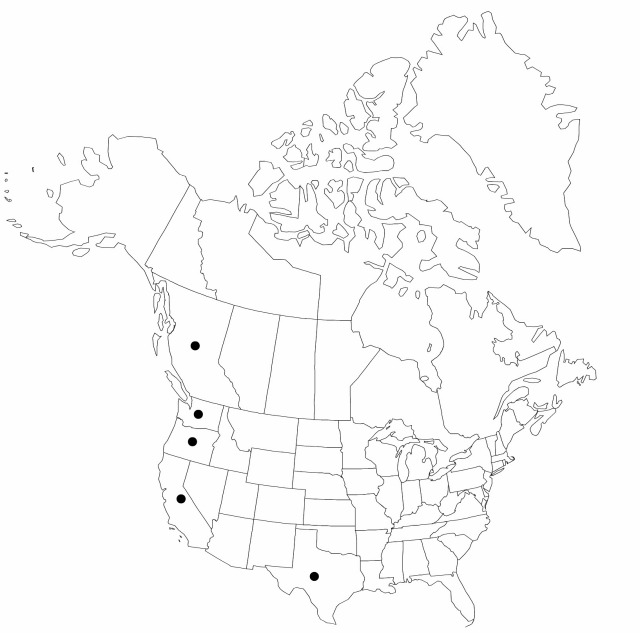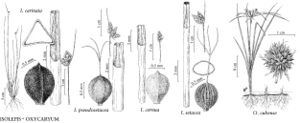Difference between revisions of "Isolepis cernua"
in J. J. Roemer et al., Syst. Veg. 2: 106. 1817.
FNA>Volume Importer |
imported>Volume Importer |
||
| (2 intermediate revisions by 2 users not shown) | |||
| Line 1: | Line 1: | ||
{{Treatment/ID | {{Treatment/ID | ||
|accepted_name=Isolepis cernua | |accepted_name=Isolepis cernua | ||
| − | |accepted_authority=(Vahl) Roemer & Schultes | + | |accepted_authority=(Vahl) Roemer & Schultes |
|publications={{Treatment/Publication | |publications={{Treatment/Publication | ||
|title=in J. J. Roemer et al., Syst. Veg. | |title=in J. J. Roemer et al., Syst. Veg. | ||
|place=2: 106. 1817 | |place=2: 106. 1817 | ||
|year=1817 | |year=1817 | ||
| + | }} | ||
| + | |special_status={{Treatment/ID/Special_status | ||
| + | |code=F | ||
| + | |label=Illustrated | ||
}} | }} | ||
|basionyms={{Treatment/ID/Basionym | |basionyms={{Treatment/ID/Basionym | ||
| Line 46: | Line 50: | ||
-->{{#Taxon: | -->{{#Taxon: | ||
name=Isolepis cernua | name=Isolepis cernua | ||
| − | |authority=(Vahl) Roemer & Schultes | + | |authority=(Vahl) Roemer & Schultes |
|rank=species | |rank=species | ||
|parent rank=genus | |parent rank=genus | ||
| Line 59: | Line 63: | ||
|publication title=in J. J. Roemer et al., Syst. Veg. | |publication title=in J. J. Roemer et al., Syst. Veg. | ||
|publication year=1817 | |publication year=1817 | ||
| − | |special status= | + | |special status=Illustrated |
| − | |source xml=https:// | + | |source xml=https://bitbucket.org/aafc-mbb/fna-data-curation/src/2e0870ddd59836b60bcf96646a41e87ea5a5943a/coarse_grained_fna_xml/V23/V23_221.xml |
|genus=Isolepis | |genus=Isolepis | ||
|species=Isolepis cernua | |species=Isolepis cernua | ||
Latest revision as of 20:39, 5 November 2020
Plants annual (or perennial?); rhizomes usually obscured by culm bases and very short, sometimes vertical and elongated. Culms 4–40 cm × 0.2–0.5 mm. Leaves sometimes sparsely orange-punctate at 10–15X; sheaths usually reddish proximally; distal blade rudimentary to much longer than sheath, often exceeding culm, to 20 cm × 0.2–1 mm. Inflorescences: involucral bract 1, sometimes subtending flower or resembling enlarged floral scale, 2–6(–23) mm. Spikelets 2–5 × 1–2 mm; scales partly or completely dark orange to red-brown, rarely stramineous, midrib greenish to stramineous, not gibbous, obscurely to prominently 3–11-veined, midrib keeled near apex, membranous, hyaline, apex rounded to acute, with mucro less than 0.1 mm; proximal scale to 2 mm; other scales 1.2–1.8 × 1–1.3 mm. Flowers: anthers 0.3–0.6 mm; styles 3-fid or 3-fid and 2-fid. Achenes falling separately from scales, medium to dark brown or stramineous, ellipsoid to obovoid, compressed-trigonous to thickly biconvex, lateral angles usually prominent, abaxial angle prominent to obscure, faces convex or adaxial face slightly concave, 0.8–1 × 0.5–0.7 mm, distinctly papillose at 10–15X to obscurely papillose at 40X, often with thin whitish surface layer. 2n = 30.
Phenology: Fruiting late spring–winter (Pacific Coast), winter–spring (Texas).
Habitat: Wet, freshwater to brackish places on beaches, dunes, marine bluffs, sandy areas, mostly coastal
Elevation: 0–800 m
Distribution

B.C., Calif., Oreg., Tex., Wash., Mexico (Baja California), temperate South America, Eurasia, Africa, Australia, New Zealand.
Discussion
Isolepis cernua is widespread and variable. Four varieties were recognized by A. M. Muasya and D. M. Simpson (2002). Only var. ceruna is known from North America. The earliest collection I have seen from the Pacific Coast is from 1888; the earliest collection I have seen from Texas is from 1974.
Selected References
None.
